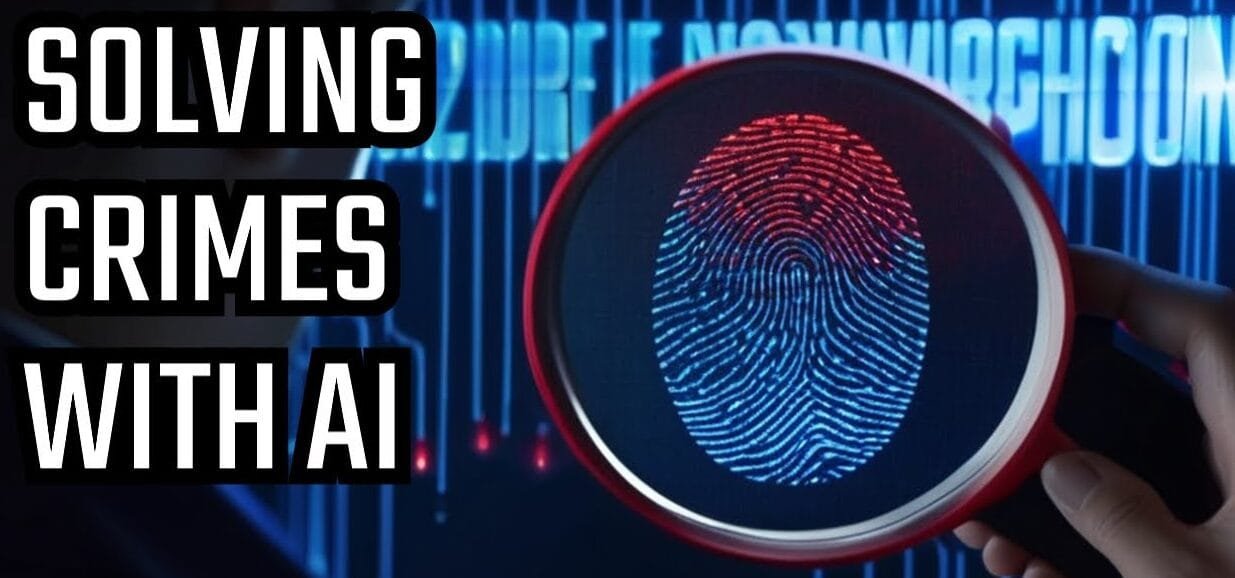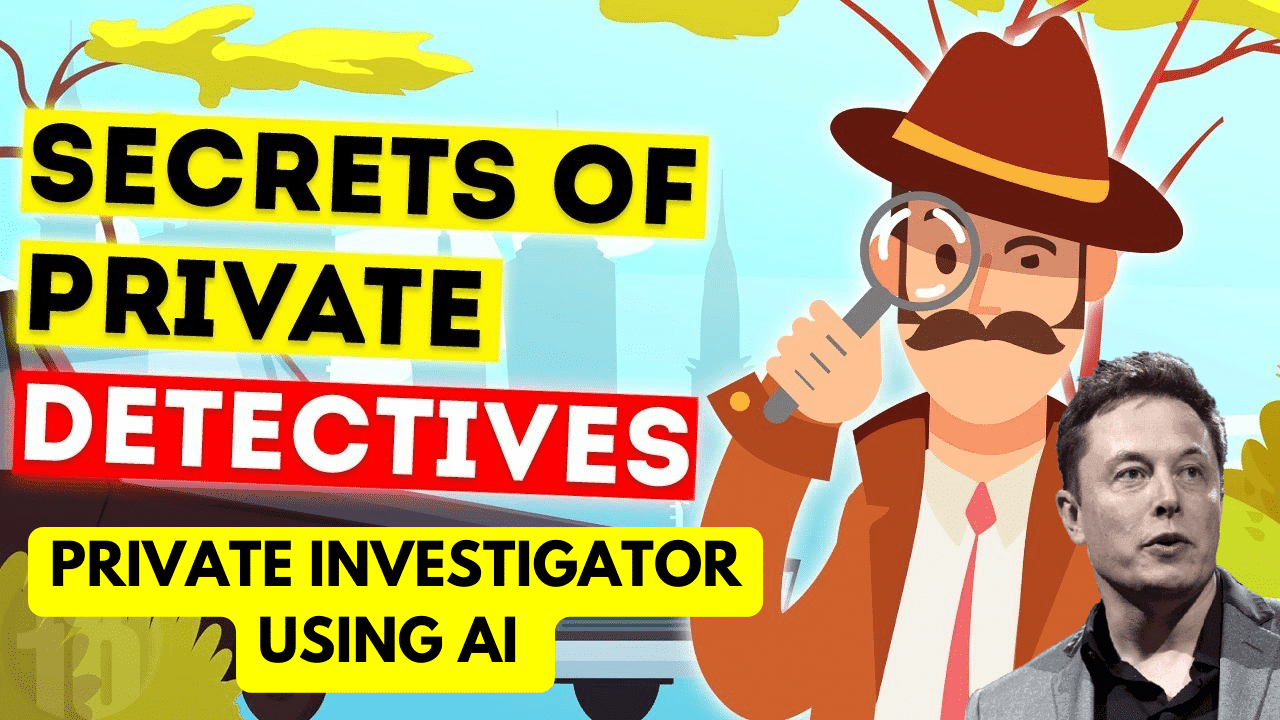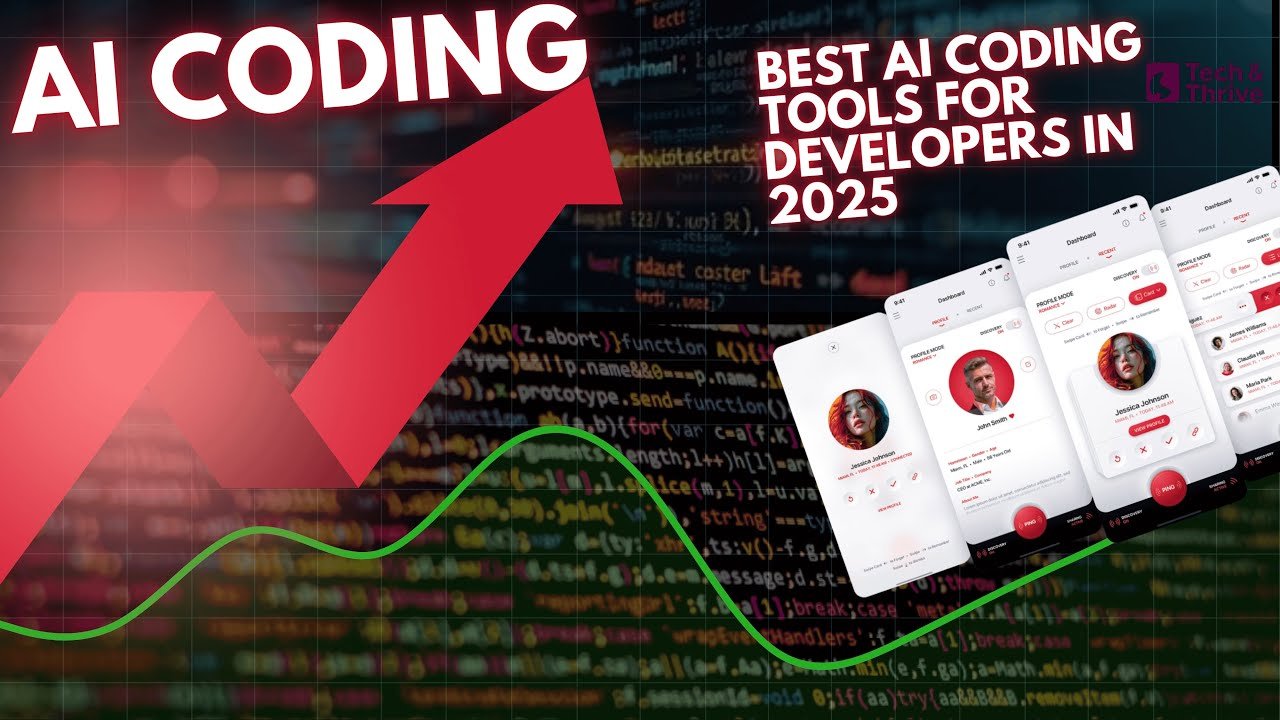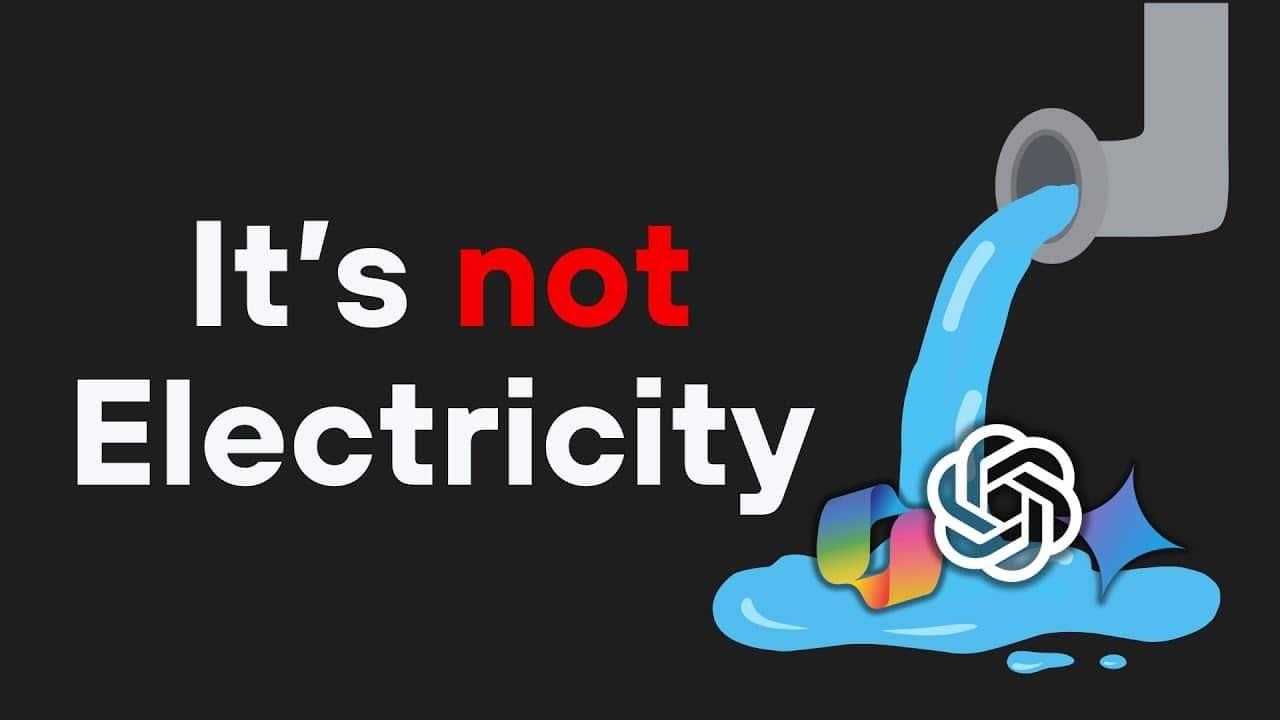Introduction:Private Investigator AI in 2025
The private investigation industry has always relied on keen observation, deep analysis, and years of experience to solve cases. However, with the rapid advancements in artificial intelligence (AI), modern detectives are now leveraging AI-powered tools to enhance their investigative capabilities. From AI private investigator software to sophisticated detective AI systems, technology is revolutionizing how investigations are conducted. In this article, we will explore the role of AI in private investigations and how it is transforming the field.
How AI is Changing Private Investigations
1. AI-Powered Surveillance and Tracking
Surveillance is a crucial aspect of private investigations, whether it’s tracking a suspect or monitoring fraudulent activities. AI-powered cameras and facial recognition systems can now analyze video footage in real-time, identifying persons of interest and tracking their movements without human intervention. This technology significantly reduces the time required to sift through hours of footage manually.
2. AI Private Investigator Software for Data Analysis
Private investigators deal with vast amounts of data, from financial records to communication logs. AI-driven analytics tools can scan through large datasets within seconds, identifying patterns, connections, and anomalies that might take weeks for a human investigator to uncover. These AI tools enhance efficiency and improve case-solving accuracy.
3. AI for Background Checks and Identity Verification
Traditional background checks require extensive manual research. AI-powered identity verification tools can now instantly scan online databases, social media platforms, and criminal records to provide a comprehensive background report. This is particularly beneficial in corporate investigations, fraud detection, and personal verification cases.
4. AI-Driven Cyber Investigation Tools
With cybercrimes on the rise, private investigators are using AI to track digital footprints, uncover hidden connections, and analyze online behaviour. AI forensic tools help in retrieving deleted data, decrypting secured files, and tracing hackers, making it an essential asset in digital investigations.
Applications of AI in Different Investigation Fields
1. Corporate Investigations
Businesses are leveraging AI to detect internal fraud, monitor employee behavior, and uncover suspicious financial transactions. AI-powered banking intelligence tools can flag unusual activities, reducing financial risks.
2. Missing Person Investigations
AI helps in locating missing persons by scanning online activity, geotagged images, and phone records. Predictive analytics can also suggest potential locations based on behavioral patterns.
3. Criminal Investigations
Law enforcement agencies and private investigators are now using AI detective tools to reconstruct crime scenes, analyze DNA data, and profile suspects with higher accuracy.
4. Infidelity and Personal Investigations
AI-based social media monitoring tools can track online interactions, identify suspicious behavior, and cross-reference multiple data points to help in infidelity investigations.
Ethical Concerns and Limitations of AI in Private Investigations
While AI significantly enhances investigative work, it also raises ethical concerns related to privacy and data security. Some challenges include:
- Legal Restrictions: Certain AI surveillance techniques may infringe on privacy laws.
- False Positives: AI algorithms are not infallible and may misidentify individuals.
- Bias in AI Systems: AI tools can sometimes reinforce existing biases, leading to incorrect conclusions.
To ensure ethical AI use in investigations, it is essential to follow legal guidelines and use AI as a supportive tool rather than a sole decision-maker.
Future of AI in Private Investigations
The integration of AI into private investigations is still evolving, but the future looks promising. We can expect:
- More advanced AI detective tools with improved accuracy.
- Widespread use of predictive analytics in crime prevention.
- Enhanced voice and facial recognition technologies.
- AI-powered automated case management systems for investigators.
The Future of Private Investigation: How AI and Advanced Tools Are Transforming the Industry
Private investigators (PIs) are no longer limited to traditional surveillance and manual research. AI-powered private investigator tools are revolutionizing the field, making investigations faster, more efficient, and more accurate. In this session we can explore how AI and modern private investigator tools are shaping the future of investigations.

AI in Private Investigations
AI-powered tools can analyze vast amounts of data, identify patterns, and extract key insights within minutes. Here’s how AI is transforming private investigations:
1. AI-Powered Search Tools
Private investigators rely on search tools to uncover hidden information. AI enhances these searches by:
- Scanning the deep web for hidden records.
- Using facial recognition to match photos with online profiles.
- Analyzing social media for connections and activity patterns.
Some of the best private investigator search tools include:
- Maltego – A powerful tool for open-source intelligence gathering.
- Pipl – An AI-driven search engine that finds hidden online profiles.
- Skopenow – Automates social media investigations.
2. AI-Based Investigative Databases
Investigators access databases to find public records, background checks, and financial data. AI improves these searches by using machine learning to predict connections between individuals. Some top private investigator databases include:
- TLOxp – Provides real-time data on individuals and businesses.
- LexisNexis Accurint – An advanced investigative platform.
- CLEAR by Thomson Reuters – Offers real-time identity verification.
3. AI in Surveillance and Facial Recognition
Surveillance is a core part of private investigations. AI enhances surveillance by:
- Detecting unusual movements in video feeds.
- Identifying suspects through facial recognition.
- Using drones for remote surveillance.
Popular investigation software includes:
- BriefCam – Uses AI to analyze CCTV footage.
- FaceFirst – A facial recognition tool for identifying people in public places.
Best Private Investigator Tools in 2025
Beyond AI, private investigators use a variety of tools to gather information. Here are some of the best tools available today:
1. Online Investigation Tools
- Spokeo – A people search engine for finding personal details.
- TruthFinder – Provides background checks and criminal records.
- Have I Been Pwned? – Checks if an email or phone number is part of a data breach.
2. GPS Trackers and Surveillance Gear
- SpyTec GPS Tracker – Tracks the location of a vehicle in real time.
- Arlo Pro 4 – A wireless security camera for discreet surveillance.
- Micro Voice Recorder – Captures conversations undetected.
3. Best Private Investigator Software
- Case Closed Software – Manages investigative cases efficiently.
- Hunchly – A web capture tool for online investigations.
- SleuthQ – AI-powered software for managing investigations.
Free Private Investigator Tools
While many tools require a subscription, some free private investigator tools can still be useful:
- Google Reverse Image Search – Identifies similar images online.
- OSINT Framework – A free collection of open-source intelligence tools.
- Wayback Machine – Retrieves deleted or archived web pages.
How to Choose the Right Private Investigator Tools
When selecting tools for investigations, consider the following factors:
- Accuracy – AI-powered tools should provide reliable and up-to-date information.
- Ease of Use – The software should be user-friendly and efficient.
- Security – Choose platforms that protect sensitive data and follow legal guidelines.
My Final Thoughts on Private Investigator Tools
The rise of AI and digital tools has completely transformed private investigations. Whether you’re a professional investigator or someone looking for information, using the right tools can make all the difference. AI-powered databases, search engines, and surveillance gear provide unmatched accuracy and efficiency in solving cases.
By leveraging these technologies, private investigators can stay ahead in an ever-evolving digital world. As AI continues to develop, the future of private investigations looks more promising than ever.
Need help with private investigation software or tools? Let us know in the comments! 🚀
How AI is Revolutionizing Private Investigations: Tools, Software & Databases
Introduction
The private investigation industry is undergoing a massive transformation with the advent of Artificial Intelligence (AI). AI-powered tools, databases, and software have made it easier for private investigators (PIs) to conduct research, track individuals, and uncover hidden information efficiently. In this guide, we explore the best AI tools, investigative software, and online resources that modern private investigators use.
AI-Powered Private Investigator Tools
Private investigators rely on various tools to gather intelligence, analyze data, and solve cases. AI has enhanced these tools, making them more accurate and efficient. Some of the best AI-powered investigative tools include:
1. AI-Based Search Engines for Investigators
- AI-powered search tools help PIs find hidden or deleted online data.
- These tools use machine learning to filter and rank relevant information.
2. Facial Recognition Technology
- Advanced facial recognition software can identify individuals across social media and public databases.
- Helps track suspects and missing persons.
3. AI-Powered Surveillance & Tracking
- GPS tracking with AI analysis helps predict movements.
- AI-enhanced CCTV software can recognize suspicious activities.
4. Automated Background Checks
- AI-based software scans public records, criminal databases, and social media for background checks.
Best Private Investigator Software
1. Maltego
- A powerful link analysis tool used for OSINT (Open Source Intelligence).
- Helps PIs map connections between people, organizations, and networks.
2. IBM Watson AI for Investigators
- Uses AI-driven analytics to analyze large datasets and detect fraud.
3. Social Links Pro
- Extracts data from social media platforms for investigative purposes.
4. Case Closed Software
- Designed for private investigation firms to manage case files, evidence, and client information.
Essential Private Investigator Databases
Investigators use specialized databases to access information quickly. Some of the top databases include:
- LexisNexis – Provides comprehensive background checks and legal records.
- TLOxp – Offers detailed personal and business records.
- Accurint – A trusted database for law enforcement and private investigators.
- CLEAR by Thomson Reuters – Delivers real-time public records and financial data.
Free & Paid Private Investigator Search Tools
Free Tools:
- Google Dorking (Advanced search queries for uncovering hidden data)
- Pipl (People search engine)
- Wayback Machine (Access archived websites)
Paid Tools:
- Skopenow (AI-driven investigative software for social media tracking)
- Echosec (Geospatial intelligence from social media)
How to Become a Private Investigator: Best Tools, Software, and Training in the USA
Introduction
AI and digital tools transforming how professionals gather intelligence. Whether you’re aspiring to become a private investigator (PI) or looking to enhance your investigative skills, having the right tools and proper training is essential. This guide explores the best investigative software, databases, and top universities offering private investigation programs in the USA.
Best Private Investigator Tools & Software
Private investigators rely on a combination of AI-powered tools and traditional investigative software to track individuals, analyze data, and uncover hidden information. Below is a comparison of some of the most widely used tools in the industry.
Comparison Table: Top Private Investigator Software
| Software | Key Features | Best For | Pricing |
|---|---|---|---|
| Maltego | OSINT (Open-Source Intelligence), Link analysis | Digital forensics & cyber investigations | Paid |
| IBM Watson AI | AI-driven analytics, fraud detection | Large-scale data analysis | Paid |
| Social Links Pro | Social media intelligence, deep web analysis | Online footprint tracking | Paid |
| Case Closed | Case management, evidence tracking | Private investigation firms | Paid |
| Skopenow | AI-based social media monitoring | Digital background checks | Paid |
| Echosec | Geospatial intelligence, social media tracking | Cybersecurity & intelligence gathering | Paid |
| Pipl | Identity verification, deep web searches | Background checks | Free & Paid |
| Google Dorking | Advanced Google search techniques | Finding hidden online information | Free |
| Wayback Machine | Website history tracking | Online evidence collection | Free |
Best Private Investigator Databases
Access to accurate data is crucial for private investigators. The following databases are commonly used for research, background checks, and fraud investigations.
Comparison Table: Top Investigator Databases
| Database | Key Features | Best For | Pricing |
|---|---|---|---|
| LexisNexis | Public & legal records, background checks | Legal & private investigations | Paid |
| TLOxp | Personal & business records, address history | Private investigators & fraud detection | Paid |
| Accurint | Public records, identity verification | Law enforcement & private investigations | Paid |
| CLEAR (Thomson Reuters) | Real-time financial & legal data | Corporate investigations | Paid |
| PACER | Court case records | Legal research & case tracking | Paid |
| OSINT Tools | Open-source intelligence gathering | Digital investigations | Free & Paid |
Top Universities in the USA for Private Investigator Training
Becoming a private investigator doesn’t always require a formal degree, but specialized training can improve your credibility and skills. Below are some of the best universities and colleges offering programs in private investigation.
Comparison Table: Best Private Investigator Training Programs
| University/College | Program Name | Key Courses | Duration | Estimated Tuition |
|---|---|---|---|---|
| Southeastern Michigan University | Associate Degree in Private Security | Criminal Law, Criminology, Law Enforcement | 2 years | $9,750 (in-state), $28,386 (out-of-state) per year |
| University of North Carolina | Graduate Certificate in Investigation | Surveillance, Evidence Collection, Criminal Cases | Self-Paced (1 Month) | Varies – Contact School |
| Ashworth College | Private Investigation Training Online | Electronic Surveillance, Computer Searches | 4 months | Flexible Payment Options |
| Fox Valley Technical College | Private Investigation Specialist Cert. | Legal & Ethical Considerations, Surveillance | Varies | Contact School |
| Madonna University | Private Investigator Certificate | Case Handling, Investigation Laws | Varies | Contact School |
Note: Tuition fees may change based on location, residency status, and additional costs. Always check with the institution for the latest updates.
Financial & Corporate Investigations
Many private investigators specialize in financial fraud and corporate investigations. AI and digital forensics play a crucial role in detecting suspicious activities.
Can Private Investigators Access Bank Records?
No, private investigators cannot legally access bank records without authorization. However, they can analyze publicly available financial data and work with forensic accountants to detect fraud.
How AI Helps in Corporate Investigations
AI-powered fraud detection software can identify suspicious transactions.
Advanced forensic accounting tools help track hidden assets and money laundering.
Predictive analytics assist in detecting fraudulent behavior before it escalates.
Corporate & Financial Private Investigations
Private investigators also specialize in corporate and financial fraud cases. Here’s how AI is used in these investigations:
Financial Private Investigators & Bank Records
- AI tools scan financial transactions for suspicious activity.
- Private investigators cannot access bank records without legal authority, but AI helps analyze publicly available financial data.
Corporate Investigations & Fraud Detection
- AI-powered software detects internal fraud and corruption.
- Corporate investigators use forensic accounting tools to trace fraudulent transactions.
General Private Investigation FAQs
What are the best private investigator tools?
Some of the best private investigator tools include AI-based search engines, facial recognition software, GPS tracking systems, and automated background check tools.
What software do private investigators use?
Private investigators use software like Maltego, IBM Watson AI, Social Links Pro, and Case Closed Software for intelligence gathering and case management.
What are the best private investigator databases?
The top private investigator databases include LexisNexis, TLOxp, Accurint, and CLEAR by Thomson Reuters.
Are there free private investigator tools available?
Yes, free tools like Google Dorking, Pipl (a people search engine), and the Wayback Machine help with online investigations.
AI & Private Investigation FAQs
How is AI used in private investigations?
AI is used for data analysis, facial recognition, automated background checks, predictive tracking, and online intelligence gathering.
What is the best AI-powered private investigator software?
AI-powered tools like Skopenow, Echosec, and IBM Watson AI help private investigators analyze data and track individuals.
Can AI predict criminal behavior?
AI can analyze patterns in criminal activity, but it does not replace traditional investigation methods.
Financial & Corporate Investigation FAQs
Can a private investigator get bank records?
Private investigators cannot legally access personal bank records without consent or a court order, but they can analyze publicly available financial data.
What are corporate investigation companies?
Corporate investigation companies specialize in fraud detection, internal investigations, and business intelligence using forensic accounting and AI-driven tools.
What tools do financial investigators use?
Financial investigators use forensic accounting software, AI fraud detection systems, and specialized financial tracking databases.
Overall Final Conclusion
The role of AI in private investigations is growing rapidly, making detective work faster, more efficient, and highly accurate. Whether through AI-powered surveillance, automated data analysis, or cyber investigations, AI is shaping the future of the private investigation industry. While challenges remain, responsible AI use can lead to groundbreaking advancements in solving cases and ensuring justice.
AI Agency Guide 2025 – Discover how to start and scale a profitable AI agency in 2025 with the latest tools, strategies, and business models.
How to Build a No-Code App Using AI in 4 Steps – Learn how to create AI-powered apps without coding in just four simple steps using the best no-code platforms.
Are you interested in learning more about AI in investigations? Stay updated with the latest trends by following our blog!











Piece of writing writing is also a excitement, if you be
acquainted with afterward you can write if not it is complex
to write.